Why ‘luck of the draw’ is a lazy phrase to throw at Gareth Southgate’s England
There’s far more behind England’s path to the semi-finals than it initially seems
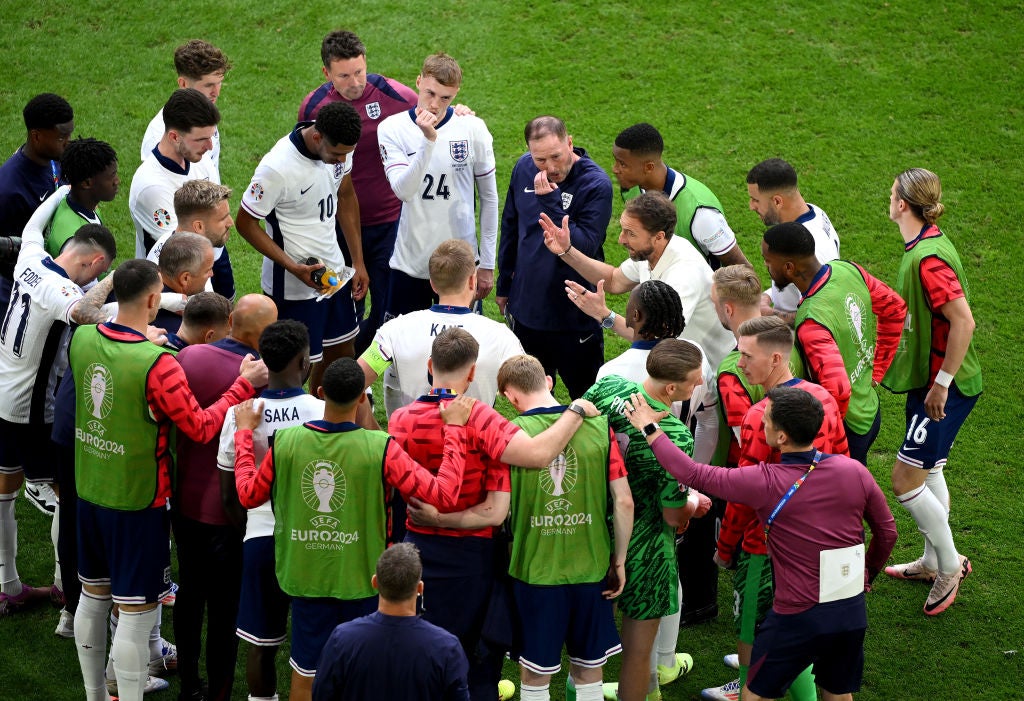
Your support helps us to tell the story
From reproductive rights to climate change to Big Tech, The Independent is on the ground when the story is developing. Whether it's investigating the financials of Elon Musk's pro-Trump PAC or producing our latest documentary, 'The A Word', which shines a light on the American women fighting for reproductive rights, we know how important it is to parse out the facts from the messaging.
At such a critical moment in US history, we need reporters on the ground. Your donation allows us to keep sending journalists to speak to both sides of the story.
The Independent is trusted by Americans across the entire political spectrum. And unlike many other quality news outlets, we choose not to lock Americans out of our reporting and analysis with paywalls. We believe quality journalism should be available to everyone, paid for by those who can afford it.
Your support makes all the difference.Around the England camp, the players know not to even indulge the idea that Euro 2024 has handed them a “forgiving draw”. Gareth Southgate has already bristled at the idea in press conferences, so it’s easy to imagine the attitude with the squad.
Players being players, though, one or two can’t help talking about how they would rather not have faced Spain or France yet. That isn’t to disrespect Netherlands, but Ronald Koeman’s team clearly aren't comparable to the great Dutch sides of the past, nor the other semi-finalists.
Gary Neville made the attitude clear - as well as how players actually speak - when comparing the draws his teams faced against those of Southgate’s era.
“The position we’re in, to play Switzerland in a quarter final and… this Holland team in a semi, I’d be going ‘what a chance’ . And I’m not creating a yesteryear story about ‘we were unlucky’ and all that because we made our own luck and didn’t make our own luck. We never got a team like this in the quarter-finals… We got Portugals and Argentinas.”
It does put a different perspective on Southgate’s historic record of three semi-finals in four tournaments, let alone one managerial tenure. England previously had to wait gaps of 28 years and 22 years, which is remarkable for one of the best-resourced football countries in the game.
A lingering debate underneath this, and almost undercutting it, has been whether the scale of the achievement is in part because of the modesty of opposition.
There was an awkward moment in the press conference after the elimination of Switzerland when one German journalist put this to Southgate and methodically listed every tournament opponent he’s faced. In terms of knock-out wins alone, that’s been Colombia, Sweden, a supposedly poor Germany, Ukraine, Denmark, Senegal, Slovakia, Switzerland and now a supposedly moderate Dutch team.
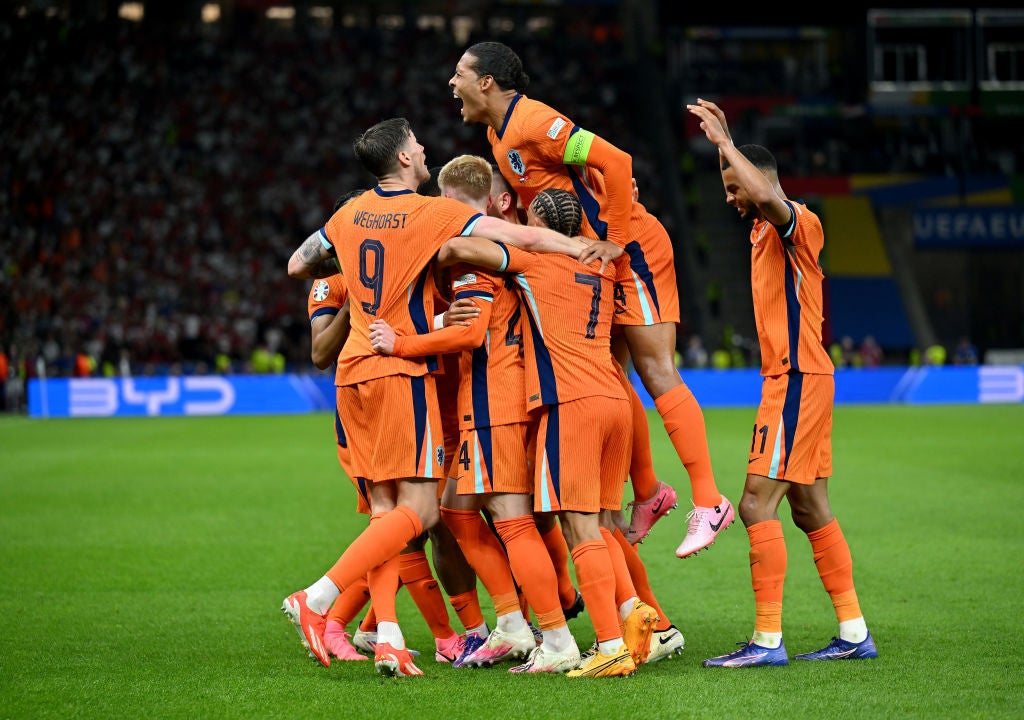
It is why this perception has grown that Southgate’s team have lost to the first elite side he’s played.
The manager responded to this one by asking whether the reporter was actually English, having previously answered another with an acerbic quip about “English entitlement”. While it is true that former internationals, supporters and many in the media have raised this question, it does go quite far beyond England, too. The nationality of the questioner proves it, and it has even been said around other squads. Some within the German camp are known to lament that finishing first in their group gave them such a tough run.
One immediate argument back from Southgate was that the Euro 2020 Germany side had “eight Champions League winners”, with the abruptness of his response indicating he had been thinking about this.
He was right, of course, but it was arguably the wrong counter-argument.
The reality has indeed been that England’s opposition haven’t been at the elite end of the competitions, including that transitional Germany in 2021. There’s no shame in admitting that. That’s because there’s the considerable caveat that you could say the exact same about many actual champions since Neville’s time. They include Brazil 2002, Italy 2006, Portugal 2016, Argentina 2022 and even Germany 2014. All had runs where you could now point to obvious flaws and easier matches.
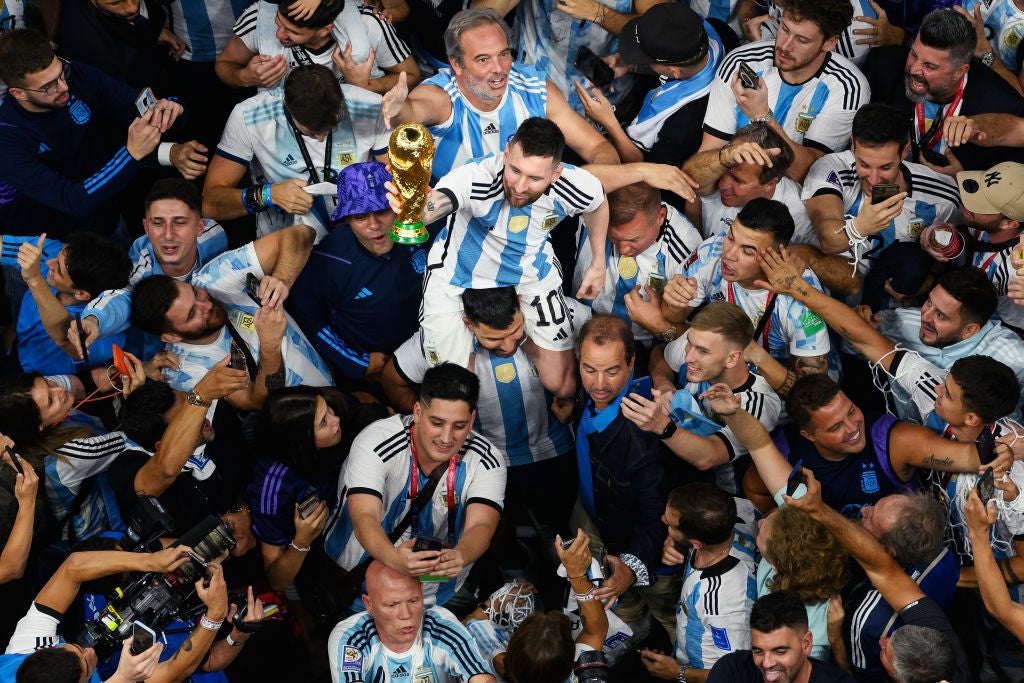
Germany 2006 were on the rise but flawed for Italy. Brazil 2014 were a disaster waiting to happen for Germany themselves. As for the England 2002 that Ronaldo's Brazil faced, well, there are bigger arguments about their failures than just the opposition they played.
This is where Southgate could have made an argument with even more merit. His England created their own reality.
They have always finished top of their group, for one. That is more than can be said for Neville’s teams.
One reason that England faced Argentina in 1998 was because they finished second in their group. The Romanian team that beat them were accomplished, but not at the elite end of a competition, either. England then faced Portugal in 2004 because they finished second in that group, too. That was admittedly behind a France with Zinedine Zidane and Thierry Henry, which points to another reality.
The Euros’ expansion to 24 teams has meant it doesn’t have the same concentration of quality. Groups are less exacting. The last-16 stage can allow these more forgiving paths, as two second-placed teams have to meet each other. This is what England have benefitted from this summer, and Southgate's team now may not even meet a group winner until the final, if they get there.
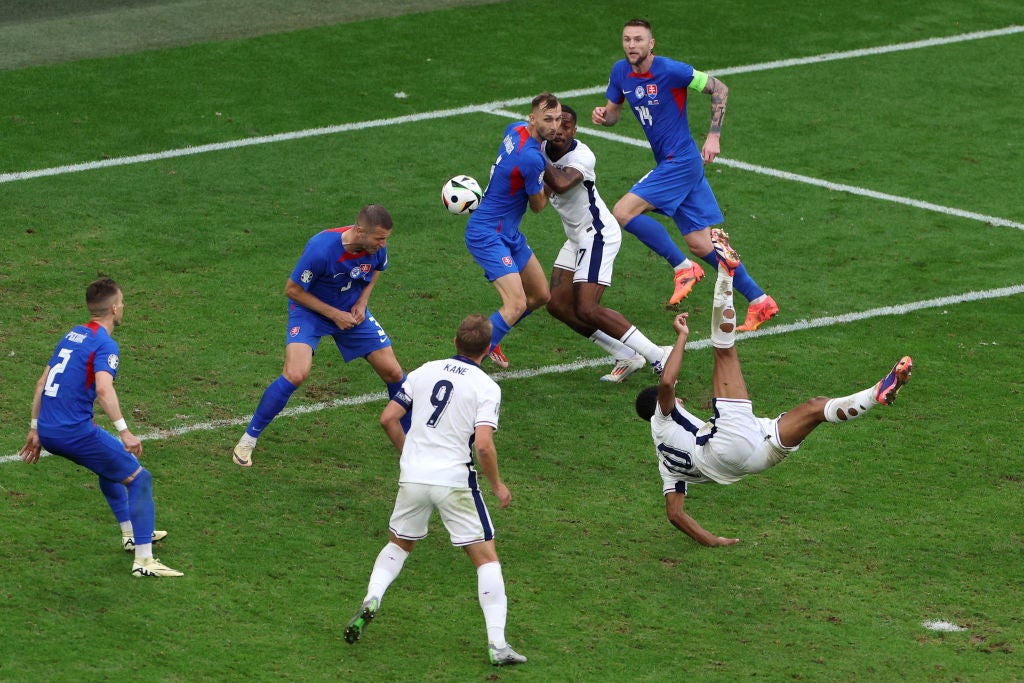
When you look at Spain’s run from the 2010 World Cup, Portugal and Germany stand out, but every single one of their players is adamant that the quarter-final against Paraguay was by far the most gruelling match. The same is true for Germany’s last-16 tie against Algeria in 2014. It was so much more demanding than the 7-1 win over Brazil.
By the same token, Colombia were a hugely testing tie for England in 2018, all the more so because the national team hadn’t actually won a knock-out game in 12 years. There was a lot of historical psychological baggage. Senegal in 2022 were similarly seen as a very different challenge.
Switzerland last Saturday, lest it be forgotten, had drawn with Germany and eviscerated Italy. They took England very close, too.
Southgate’s side got through it, and got through penalties. The latter was in part by banishing thoughts like “lottery” and “luck” when it comes to shootouts but that in itself points to something wider here. When people talk about “luck” evening out they usually think in terms of the same game, or tournament. The pure maths of how that actually works means that actually happens over a much longer time period.
Maybe that’s what we’re seeing now. Maybe this is just the bigger scale of international football, since it otherwise mostly takes place in intense periods over single summers. In the same way that the same stories eventually come around again, and there are chances of redemption for figures like Stuart Pearce six years after missing a penalty, perhaps this is the inevitable flip side of some genuine bad luck in previous big moments.
Southgate is now getting the luck the national team has missed in the past.
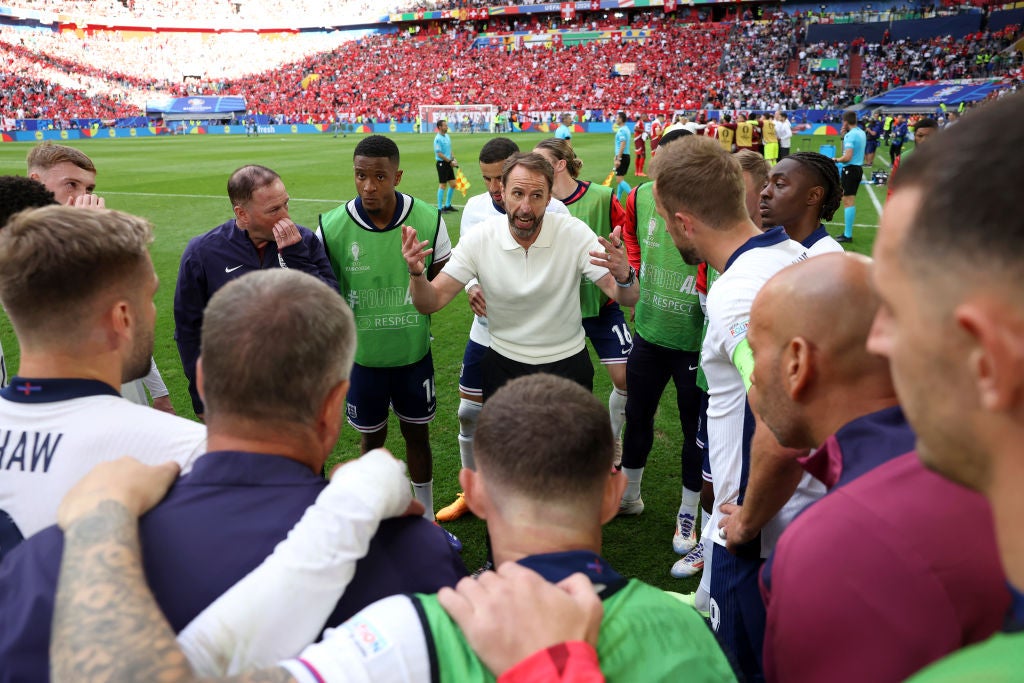
The Euros may now be expanded but Neville’s side were still unfortunate to get Portugal in 2004, say, rather than another group winner like Sweden. There was bad luck in some genuinely epic tournament games, too, where England did take the elite sides to the wire. They had a spell over the turn of the millennium when they were frequently involved in some of the best games of tournaments, including Euro 96, 1998 and Euro 2004. There were only centimetres in Paul Gascoigne’s miss against Germany, or disallowed goals against both Argentina and Portugal.
None of that is to take away from Southgate’s era. He had to set so much right, and he himself knows how so much of tournaments hinge on luck. All any manager can do in response is minimise its effects. That is what he has done, and that extends to the draw.
The questions will persist until England do actually win that trophy. That, however, is something that doesn’t change no matter the draw.
Join our commenting forum
Join thought-provoking conversations, follow other Independent readers and see their replies
Comments